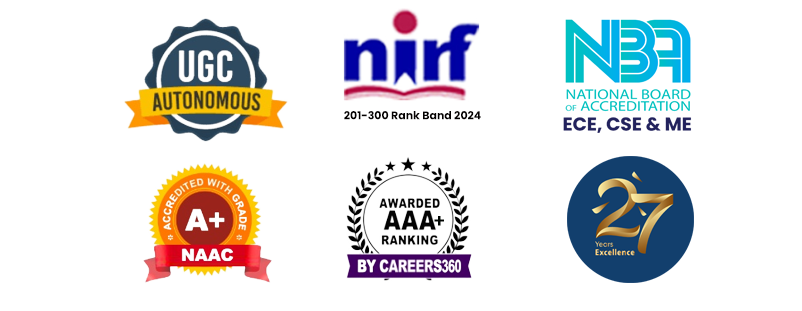POS:
|
P01: |
Engineering Knowledge: Apply the knowledge of mathematics, science, engineering fundamentals, and an engineering specialization to the solution of complex engineering problems. |
|
P02: |
Problem Analysis: Identify, formulate, review research literature and analyse complex engineering problems reaching substantiated conclusions using first principles of mathematics, natural sciences and engineering sciences. |
|
P03: |
Design/development of Solutions: Design solutions for complex engineering problems and design system components or processes that meet the specified needs with appropriate consideration for the public health and safety and the cultural, societal and environmental considerations. |
|
P04: |
Conduct investigations of complex problems: Use research based knowledge and research methods including design of experiments, analysis and interpretation of data and synthesis of the information to provide valid conclusions. |
|
P05: |
Modern tools usage: Create, select and apply appropriate techniques, resources and modern engineering and IT tools including prediction and modelling to complex engineering activities with an understanding of the limitations. |
|
P06: |
The engineer and society: Apply reasoning informed by the contextual knowledge to assess societal, health, safety, legal and cultural issues and the consequent responsibilities relevant to the professional engineering practice. |
|
P07: |
Environment and sustainability: Understand the impact of the professional engineering solutions in societal and environmental contexts, and demonstrate the knowledge of, and need for sustainable development. |
|
PO8: |
Ethics: Apply ethical principles and commit to professional ethics and responsibilities and norms of the engineering practice. |
|
PO9: |
Individual and team work: Function effectively as an individual and as a member or leader in diverse teams, and in multidisciplinary settings. |
|
PO10: |
Communication: Communicate effectively on complex engineering activities with the engineering community and with society at large, such as, being able to comprehend and write effective reports and design documentation, make effective presentations and give and receive clear instructions. |
|
PO11: |
Project management and finance: Demonstrate knowledge and understanding of the engineering and management principles and apply these to one’s own work, as a member and leader in a team, to manage projects and in multidisciplinary environments. |
|
PO12: |
Life-long learning: Recognize the need for and have the preparation and ability to engage in independent and life-long learning in the broad test context of technological change. |
PSOS:
CSE(Artificial Intelligence & Machine Learning)
Program Specific Objectives (PSOs)
PSO1: Apply a range of AI and ML techniques to analyze and solve real-world problems effectively.
PSO2: Design and develop AI systems by integrating appropriate algorithms, models, and technologies to address specific problem domains.
PSO3: Develop the ethical implications and societal impact of AI and ML technologies.
Department : CSE(Data Science)
Program Specific Objectives (PSOs)
PSO1: Apply Data Science Techniques, statistical analysis, machine learning algorithms, data visualization, and data manipulation effectively to solve complex data problems.
PSO2: Demonstrate proficiency in conducting data collection, preprocessing, analysis, and interpretation, contributing to the advancement of the field.
PSO3: Able to independently carry out research and investigation to solve societal problems.
Department: CSE(Cyber Security)
Program Specific Objectives (PSOs)
PSO1: Apply a range of Cyber Security techniques and measures to protect digital systems effectively and mitigate security risks.
PSO2: Demonstrate to conduct research in the field of Cyber Security, contributing to the development of new knowledge, algorithms, and approaches for enhanced security.
PSO3: Analyze and develop proficiency in the areas of network security, cyberlaws and ethics.





